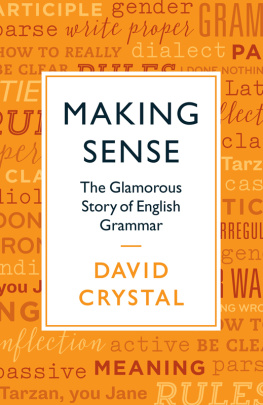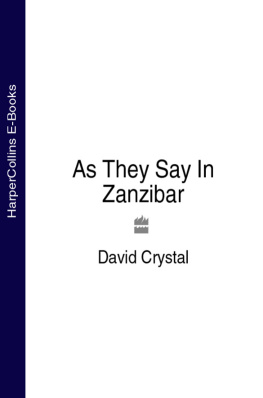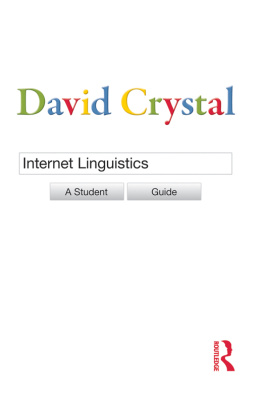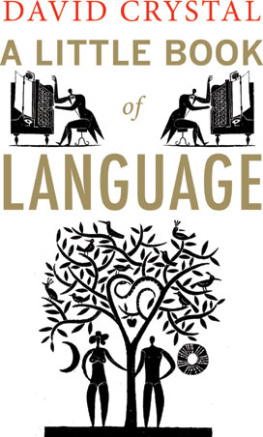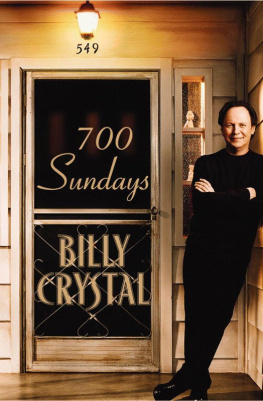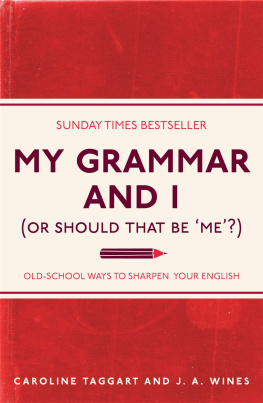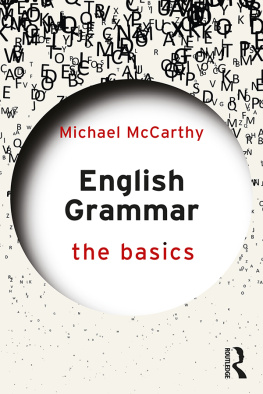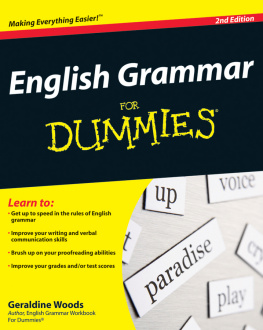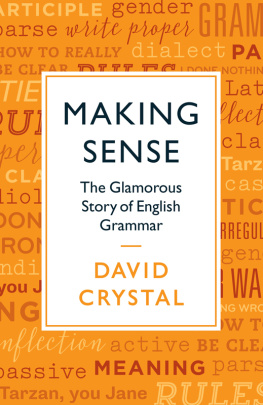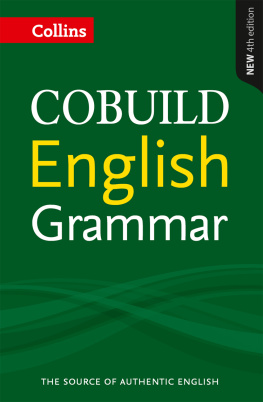Making Sense
DAVID CRYSTAL is Honorary Professor of Linguistics at the University of Wales, Bangor. His many books range from clinical linguistics to the liturgy and Shakespeare. He is the author of The Story of English in 100 Words, Spell It Out: The Singular History of English Spelling, and Making a Point: The Pernickety History of English Punctuation, all published by Profile. His Stories of English is a Penguin Classic.
By David Crystal in this series
The Story of English in 100 Words
Spell It Out: the Singular Story of English Spelling
Making a Point: the Pernickety Story of English Punctuation
Also by David Crystal
The Gift of the Gab: How Eloquence Works
The Oxford Dictionary of Original Shakespearean Pronunciation
Wordsmiths and Warriors: the English-language Tourists Guide to Britain
Evolving English: One Language, Many Voices
The Cambridge Encyclopedia of Language
By Ben and David Crystal
Oxford Illustrated Shakespeare
Shakespeares Words: a Glossary and Language Companion
Making Sense:
The Glamorous Story of English Grammar
David Crystal

First published in Great Britain in 2017 by
PROFILE BOOKS LTD
3 Holford Yard
Bevin Way
London WC1X 9HD
www.profilebooks.com
Copyright David Crystal, 2017
The moral right of the author has been asserted.
All rights reserved. Without limiting the rights under copyright reserved above, no part of this publication may be reproduced, stored or introduced into a retrieval system, or transmitted, in any form or by any means (electronic, mechanical, photocopying, recording or otherwise), without the prior written permission of both the copyright owner and the publisher of this book.
A CIP catalogue record for this book is available from the British Library.
eISBN 978 1 78283 230 0
Preface
As with the earlier titles in this series, on spelling (Spell It Out) and punctuation (Making a Point), my aim in this book is exactly what its title and subtitle suggest: to explain how the subject of grammar has evolved since classical times to reach the position it is in today. All three books to coin a phrase, S, P a[nd] G bring to light the complex history of the English language, which is calling out for description at a point when our present-day sensibilities are struggling to grasp the realities of language variation and change, and the implications this has for childrens education.
Grammar presents a special challenge, because far more than in the case of spelling and punctuation there is so much abstract terminology to take on board, and the subject is burdened with a centuries-old history of educational practice that many readers will recall as being anything but glamorous. The obvious questions therefore are: Where did it all come from? Why is it needed? What is its value? How can it be taught and tested? And where on earth could glamour possibly lie?
I address all these questions in this book, while bearing in mind that my readership will range from those who already have considerable expertise to those with little or no grammatical knowledge. The opening chapters have two parts, accordingly: an opening section that is introductory in character; and an explanatory section that explores each issue in greater depth. Taken together, I hope these will provide a satisfying answer to the question I am most often asked: Why is there such a fuss about grammar?
I am most grateful to those who read a draft of the book from various points of view: to Professor Richard Hudson, especially for providing me with extra perspective on recent UK trends in language in education; to Hilary Crystal, for advice on my general level and approach to the subject; and to John Davey (who commissioned the work on behalf of Profile Books) for guidance on matters of content and organization.
Chapters on the political background to grammar-teaching in the UK were felt by the publisher to be too parochial for an international readership, so I have made these available on my website as an essay entitled The recent political history of English grammar in the UK: www.davidcrystal.com
grammar
from Old French gramaire,
which was an adaptation of Latin grammatica
which in turn came from Greek grammatiki
meaning pertaining to letters or literature
which later narrowed to mean just the language of texts
which in the Middle Ages meant chiefly Latin
and so took on the meaning of special learning, knowledge
and then secret knowledge as in magic and astrology
which is how it was first used in Scotland in the 18th century
when the word was pronounced with an l instead of an r
and the meaning developed of enchantment, spell
and later became the word we know today, meaning
charm, attractiveness, physical allure
spelled
glamour (British English)
glamor (American English)
Introduction
Not knowing grammar: a students tale
I was giving a new intake of undergraduates their first lecture on English grammar. It was the early 1970s a few years after the formal teaching of grammar had disappeared from the school curriculum in the UK, and I was about to experience one of the consequences.
Id given this course several times. The main aim of my opening lecture was to make students aware of the contrast between the old ways of learning about grammar they had experienced in school and the new approaches they would encounter at university. To do this, I would take an example of a rule I knew they would all have been taught: Never end a sentence with a preposition. Many older readers will recall having had that rule dinned into them.
Ill explain where the rule came from in . In my class I simply illustrated what the rule did. They would have been told that the first of the following two sentences was incorrect, and the second was correct:
This is the man I was talking to.
This is the man to whom I was talking.
I would then go on to show how sentences with prepositions at the end have been used in English since Anglo-Saxon times, give some examples from Shakespeare (To be or not to be and fly to others that I know not of), and point out that today the difference is one of style: the second sentence is much more formal than the first. Both are acceptable in standard English, but the first is more likely to be found in informal speech and the second in formal writing. Today Id add that you dont see the second one much on Facebook.
Anyway, on that day in the early 1970s, I was halfway through my usual explanation when I noticed that my audience had begun to fidget (more than usual). Some were whispering to each other. I stopped what I was saying and asked: Is there a problem?
One student put her hand up. Please, she said, Whats a preposition?
I was, as I used to say in Liverpool, gobsmacked. I had never been asked that question before. It had never occurred to me that someone, now aged 18, could have gone through school without learning what a preposition was. I asked the audience: How many of you dont know what a preposition is? Most put their hands up. I couldnt believe it.
I think I know, said another student. Thank goodness, I thought, and asked her to continue. Then she said: Is it something to do with getting on a horse?
There is no single word in Liverpudlian slang for a greater degree of gobsmackedness. I think I croaked, How do you mean?
Well, she said, I was always told that a pre-position was what one had to adopt when preparing to mount. She pronounced it pree-position.
Next page
